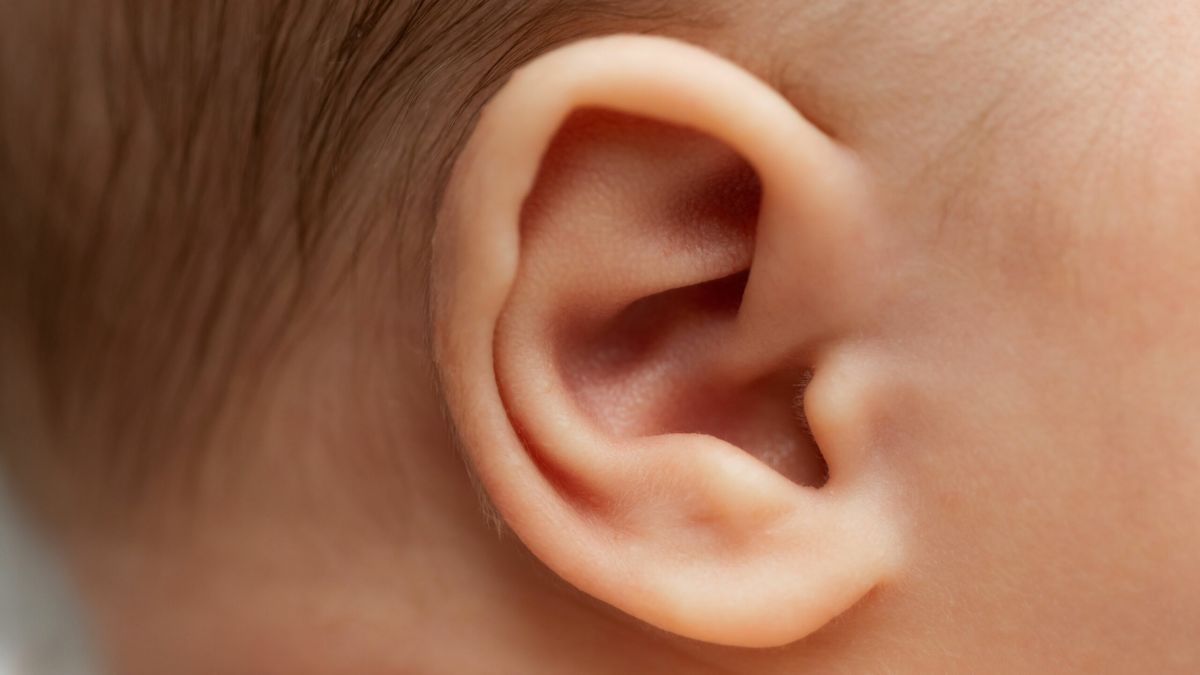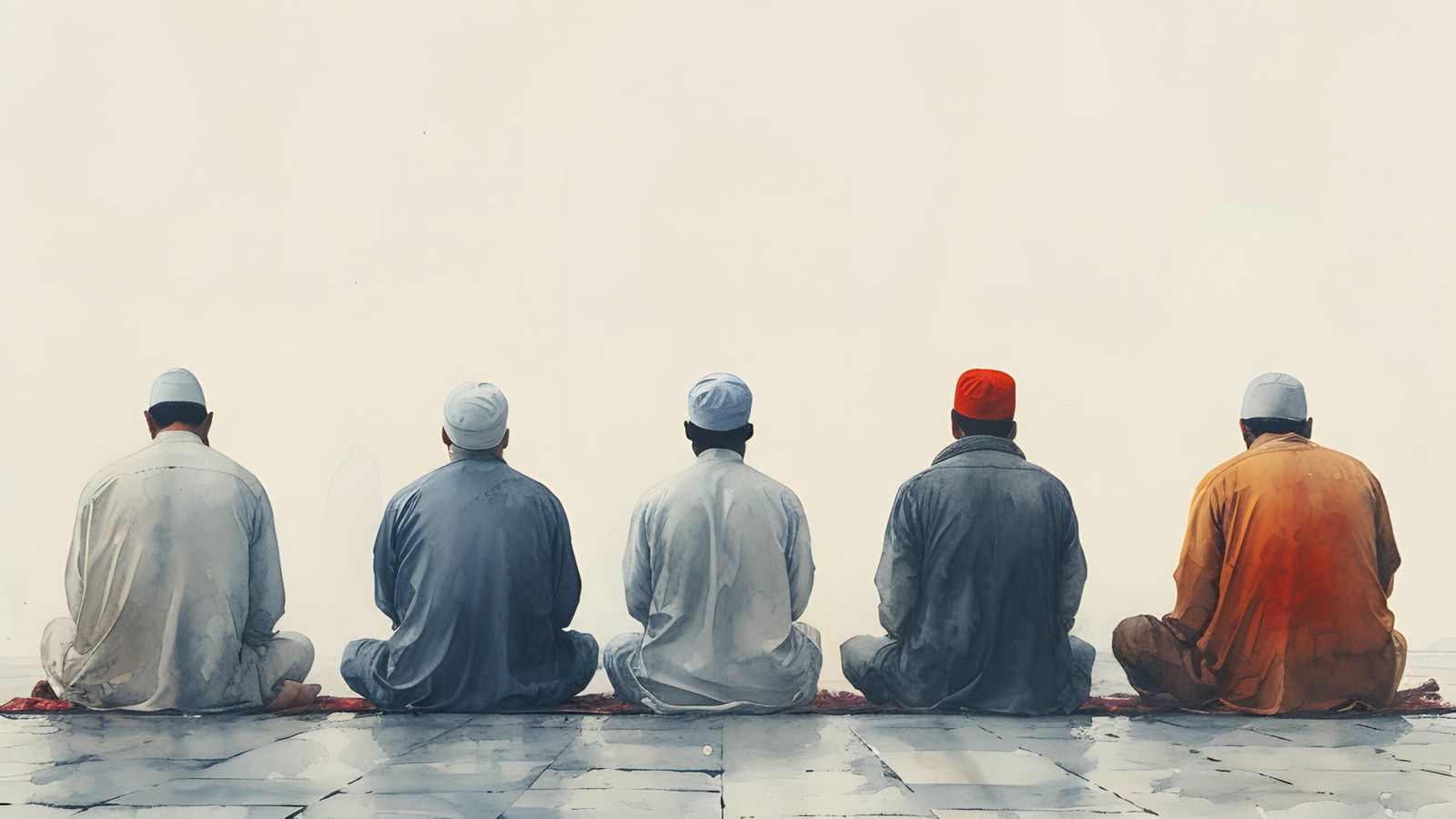The Ruling on Calling the Adhān and Iqāmah in the Ears of the Newborn
Imām Ibn al-Qayyim, Imām Ibn Bāz, Imām Ibn ʿUthaymīn, Imām al-Albānī


Imām Ibn al-Qayyim said:
Chapter concerning calling the adhān in the right ear of the newborn and calling the iqāmah in his left; With regards to this, there are several (mistakenly accepted) aḥādīth:
- On the authority of Abū Rāfiʿ (رضي الله عنه): I saw the Messenger of Allāh (صلى الله عليه وسلم) call the adhān in the ears of Ḥasan ibn ʿAlī after Fāṭimah had birthed him. Narrated by Abū Dāwūd and al-Tirmidhī who said: This ḥadīth is authentic.1
- Narrated by al-Bayhaqī in ‘al-Shuʿab [al-Īmān]’ on the authority of al-Ḥasan ibn ʿAlī (رضي الله عنه) that the Prophet (صلى الله عليه وسلم) said: “Whoever has been granted a newborn and calls the adhān in his right ear and the iqāmah in his left will have the sickness of Umm al-Ṣibyān lifted from him [ward off from him a female companion among the jinn].”2
- On the authority of Ibn ʿAbbās (رضي الله عنهما) that the Prophet (صلى الله عليه وسلم) called the adhān in the ear of al-Ḥasan ibn ʿAlī on the day of his birth, and called the iqāmah in his left ear.3 In both this and the previous narration, there is weakness.4 5
The Commentary of Shaykh Ibn Bāz
It has not been confirmed that the Prophet (صلى الله عليه وسلم) ever called the adhān in the ears of any newborn boy or girl. Rather, there are some ḥadīth that have weakness in them in which he (صلى الله عليه وسلم) called the adhān in the right ear and the iqāmah in the left. If a person chooses to do so, then there is nothing wrong with this as ʿUmar ibn ʿAbd al-ʿAzīz and some of the scholars have also done so. If, however, he chooses to leave calling either the adhān or the iqāmah and simply name the newborn, then there is also nothing wrong with this. For the Prophet (صلى الله عليه وسلم) named his son Ibrāhīm without calling either the adhān or the iqāmah in his ears. He (صلى الله عليه وسلم) also named some of the children born to the companions on the seventh day after their birth without calling the adhān or the iqāmah in their ears.6
The Commentary of Shaykh Ibn ʿUthaymīn
As for calling the iqāmah in the left ear, it is weak. As for calling the adhān in the right ear, its narrations are acceptable although they are also the subject of criticism. It would be called as soon as the newborn is birthed. The wisdom behind it is to allow the first thing that is heard to be the adhān which is the call to ṣalāh and success while also consisting of Allāh’s glorification and oneness, and the testification of the Prophet’s (صلى الله عليه وسلم) message.7
The Commentary of Shaykh al-Albānī
We used to adopt the opinion that it is from the Sunnah to call the adhān in the ears of the newborn, knowing that the ḥadīth to this effect was narrated in Sunan al-Tirmidhī with a weak chain. However, we strengthened its narration by corroboration with others. This corroboration came from the ḥadīth mentioned by Ibn al-Qayyim in Tuḥfah al-Mawdūd which was attributed to al-Bayhaqī in Shuʿab al-Īmān. Although Ibn al-Qayyim mentioned explicitly that its narration was weak, I interpreted this as being not severe in weakness. Based on this, I considered it a valid means of corroboration for the weak ḥadīth of Abū Rāfiʿ mentioned by al-Tirmidhī.
Then, following Allāh finally easing for us the publication of the book al-Shuʿab, our Islamic libraries were supplemented with a precious book, consisting of ḥadīths not contained within the confines of the Six Books of Ḥadīth or other then them. Among them, was the ḥadīth that I interpreted Ibn al-Qayyim using to corroborate that weak ḥadīth of Abū Rāfiʿ. Its chain, as mentioned by al-Bayhaqī, contains two narrators accused of lying. Upon viewing it in this way, it became abundantly clear that Ibn al-Qayyim (raḥimahullāh) showed carelessness in stating that these narrations were merely weak. Rather, it is more accurate to define them as very weak. In this situation, it is most unsuitable for the one who busies himself with the science of hadīth to interpret that which is severely weak as being suitable for corroboration in the same way as that which is not severely weak. As such, I am left with no recourse but to rescind my strengthening of the ḥadīth of Abū Rāfiʿ as narrated in Sunan al-Tirmidhi and among the ḥadīths of al-Shuʿab due to the severity of its weakness. Thus, the ḥadīth of Abū Rāfiʿ remains weak [unstrengthened and uncorroborated].
Finally, we remain upon that which Allāh has guided us towards in refraining from acting in accordance with weak ḥadīths. We return to this issue saying: Insofar as the ḥadīth of Abū Rāfiʿ is weak, the ḥadīths used in corroboration of it are even more severely weak than it; the weak shall persist in its state of weakness. In consideration of this, we rescind our previous position of viewing the adhān in the ears of the newborn as being from the Sunnah or legislated.8
Endnotes:
[1] Weak: narrated by Abū Dāwūd: 5105 and initially graded ḥasan (sound) by Shaykh al-Albānī. Then, in Silsilah al-Aḥādīth al-Ḍaʿīfah, he said: “I had graded this ḥadīth ḥasan in al-Irwāʾ. Then, upon the successful publishing of ‘al-Shuʿab’ by al-Bayhaqī—and all praise is due to Allāh—I returned to its chain and it became plainly evident to me how severely weak it actually was. So, I rescind the grade of Ḥasan and return the ḥadīth of Abū Rāfiʿ to its state of weakness as stipulated by its chain of narration. This is an example among many that have compelled me to admit that true knowledge is unaccepting of stagnation. That I must continue upon the path of research and correction until assuredness finally reaches me [i.e., his death رحمه الله].” See Silsilah al-Aḥādīth al-Ḍaʿīfah: 6121.
[2] Fabricated: narrated by al-Bayhaqī: 8254 and graded mawḍūʿ (fabricated) by Shaykh al-Albānī in Silsilah al-Aḥadīth al-Ḍaʿīfah: 321. He said: “The complete fabrication of this ḥadīth seems to have been overlooked by many who have composed books on remembrances and invocations. Like al-Imām al-Nawawī (رحمه الله) who mentions this ḥadīth with the narration of Ibn al-Sunnī without even an indication of its weak state. Then, Ibn ʿAllān—who explains it—remained silent regarding it. Opting to offer no comment on its chain! Then, Ibn Taymiyyah (رحمه الله) came after al-Nawawī and mentions the same narration in al-Kalim al-Ṭayyib, his student Ibn al-Qayyim following him in this by mentioning it in his book al-Wābil al-Ṣayyib. They indicate its weak state with the statement before it ‘it has been mentioned’. In a sense, this removes the responsibility from them of remaining silent of its weak state. It does not, however, remove the responsibility of mentioning it in the first place. This is because, in mentioning it in this way, there is an implication that the ḥadīth is just weak and not fabricated. Otherwise, they would not have mentioned it at all. This is undoubtedly what is understood by anyone who reads their books. Then, after them, others have been deceived by their actions as they are both great imams, saying: There must be nothing wrong with this as a weak hadīth may be acted upon in matters of supplementary actions of righteousness [i.e., not to differentiate ḥalāl and ḥarām]. Or interpreting it as a corroboration of other ḥadīths that are similarly weak. All the while forgetting that such corroboration could only be valid if the weakness of the ḥadīths in question are not severe. I have seen such reasoning occur as narrated by al-Tirmidhī [mentions the aforementioned ḥadīth no. 1] who said: This is an authentic ḥadīth and we act in accordance with it…I say: This ḥadīth is not a befitting narration for corroboration because its chain contains a liar, one whose narrations have been abandoned completely. I am, therefore, surprised by the way in which al-Bayhaqī and Ibn al-Qayyim have graded it merely weak. To the extent that I almost considered it a valid hadīth for corroboration. Then, I saw that it was obligatory for me to clarify its state.”
[3] Fabricated: narrated by al-Bayhaqī: 8620 and graded mawḍūʿ (fabricated) by Shaykh al-Albānī in Silsilah al-Aḥādīth al-Ḍaʿīfah: 6121.
[4] Shaykh al-Albānī said, regarding this: “There is great carelessness in this statement. I had hoped that such a thing would not have been said by the likes of him due to the severe weakness of both narrations. As the hadīths he is referring to have chains that contain two men that were known to fabricate ḥadīth. Some of the contemporary scholars have been deceived by this to the point where they use the ḥadīth of Abū Rāfiʿ to corroborate the content of these narrations. If they knew the severity of its weakness, they would not have done so.”
[5] Source: Tuḥfah al-Mawdūd: 29-30.
[6] Source: Fatāwá Nūr ʿalá al-Darb 18:241.
[7] Source: Fatāwá Nūr ʿalá al-Darb 6:2.
[8] Source: Jāmiʿ Turāth 2:591-592.
Translated by: Riyāḍ al-Kanadī
Most Popular: Last 30 Days















